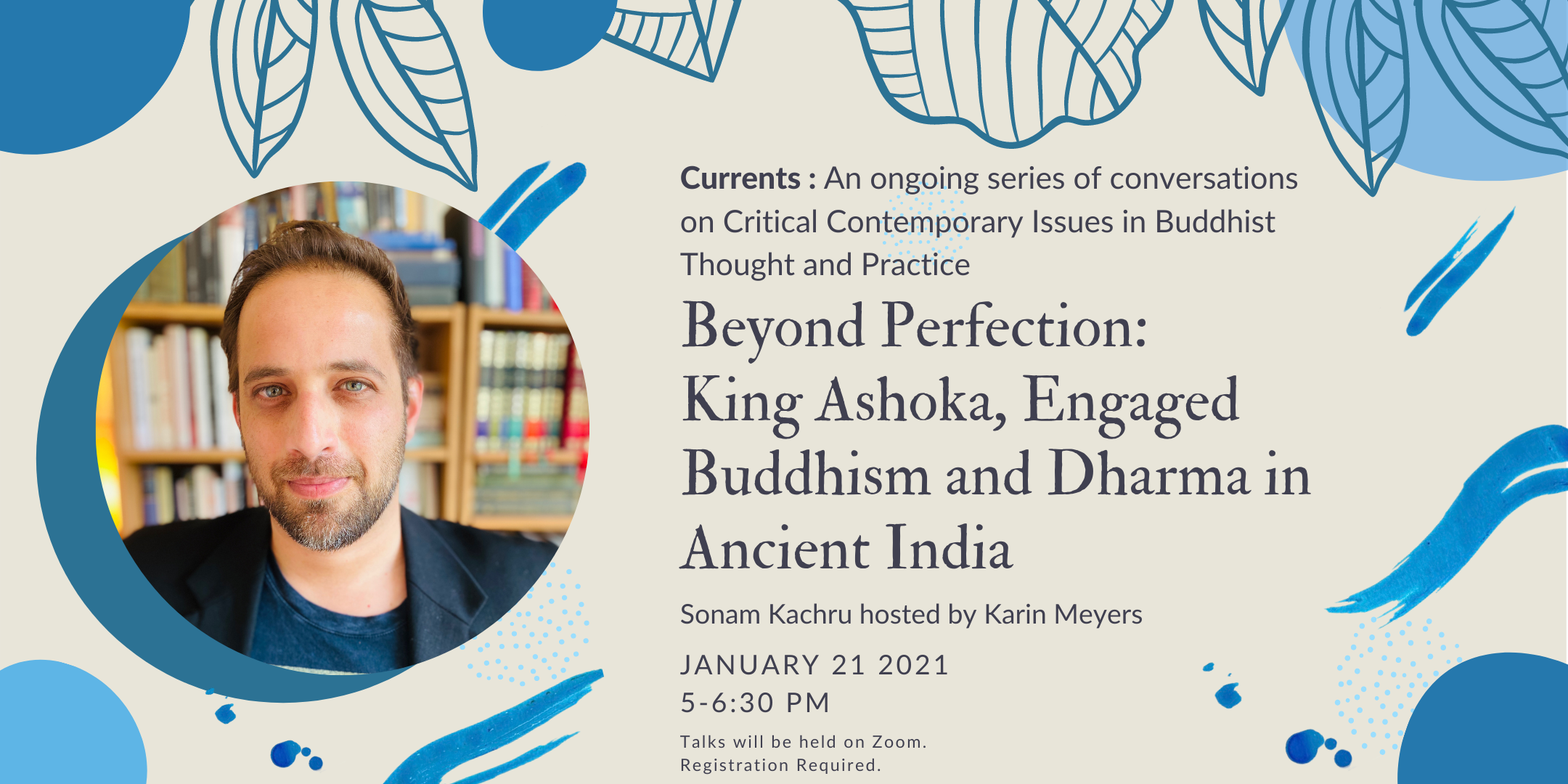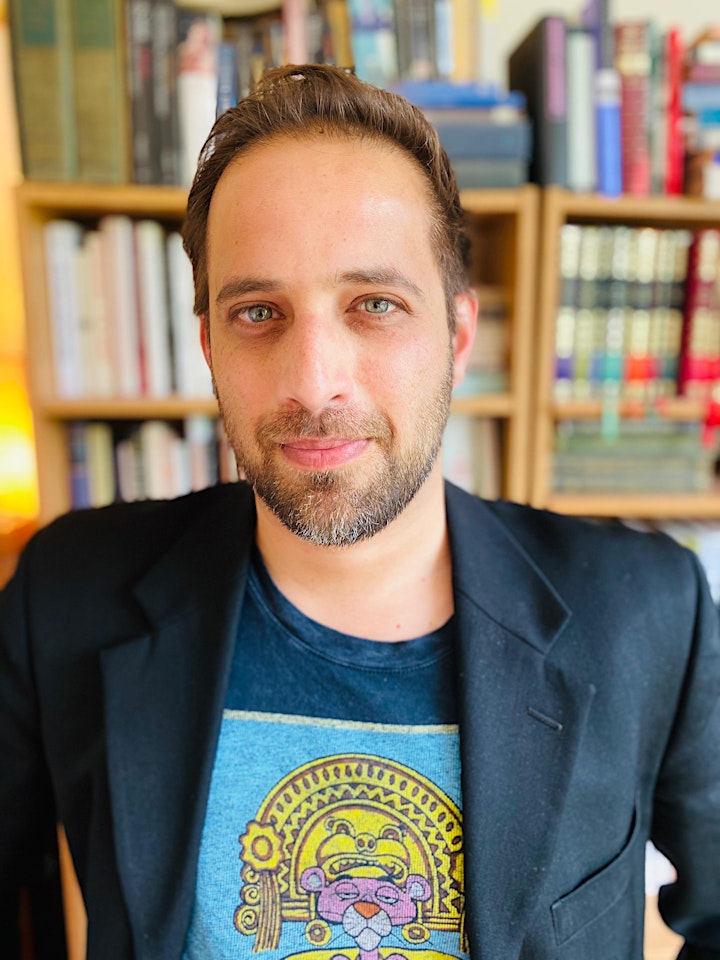
Beyond Perfection: King Ashoka, Engaged Buddhism, and Dharma in Ancient India
Beyond Perfection: King Ashoka, Engaged Buddhism and Dharma in Ancient India with Sonam Kachru
In the introduction to his book, The Buddha and his Dharma, the Indian scholar, politician and social reformer, B. R. Ambedkar entertained Buddhism’s future in modern India with the help of a question: “What was the object of the Buddha in creating the Bhikkhu? Was the object to create a perfect man? Or was his object to create a social servant devoting his life to service of the people and being their friend, guide and philosopher?”
In this conversation we shall explore this question by examining the remarkable legacy of the ancient Buddhist king, Ashoka Maurya, whose experiments in moral leadership, as represented in the archeological record and Buddhist narratives, reveal the pro-social implications of Buddhist ethical and contemplative practices, and remain a powerful lens to think through the contested place of Buddhism in a political world.
Sonam Kachru is an Assistant Professor in the Department of Religious Studies at the University of Virginia. His work centers on the history of philosophy in ancient South Asia, with a particular emphasis on Buddhist philosophy and literature. His first book, Other Lives: Mind and World in Indian Buddhism, is forthcoming with Columbia University Press.
About Currents
In this series of conversations hosted by Mangalam Academic Director, Karin Meyers, scholars of Buddhist studies will offer critical perspectives on current social, political, economic and ecological crises in light of Buddhist history, thought and practice. In Asia, Buddhist study and practice were traditionally integrated together in monastery life. Today, in the west, serious study and practice are typically pursued in different social locations, the university, and Dharma centers. By bringing academic scholars and Dharma practitioners together in conversation, this series aims to bridge that gap. By focusing on contemporary issues and crises, the intention is to explore the relevance of Buddhist teachings for our times, as well as to support and inspire socially transformative Buddhist practice. Each session will begin and end with a short community practice and include ample time for Q&A and discussion.


